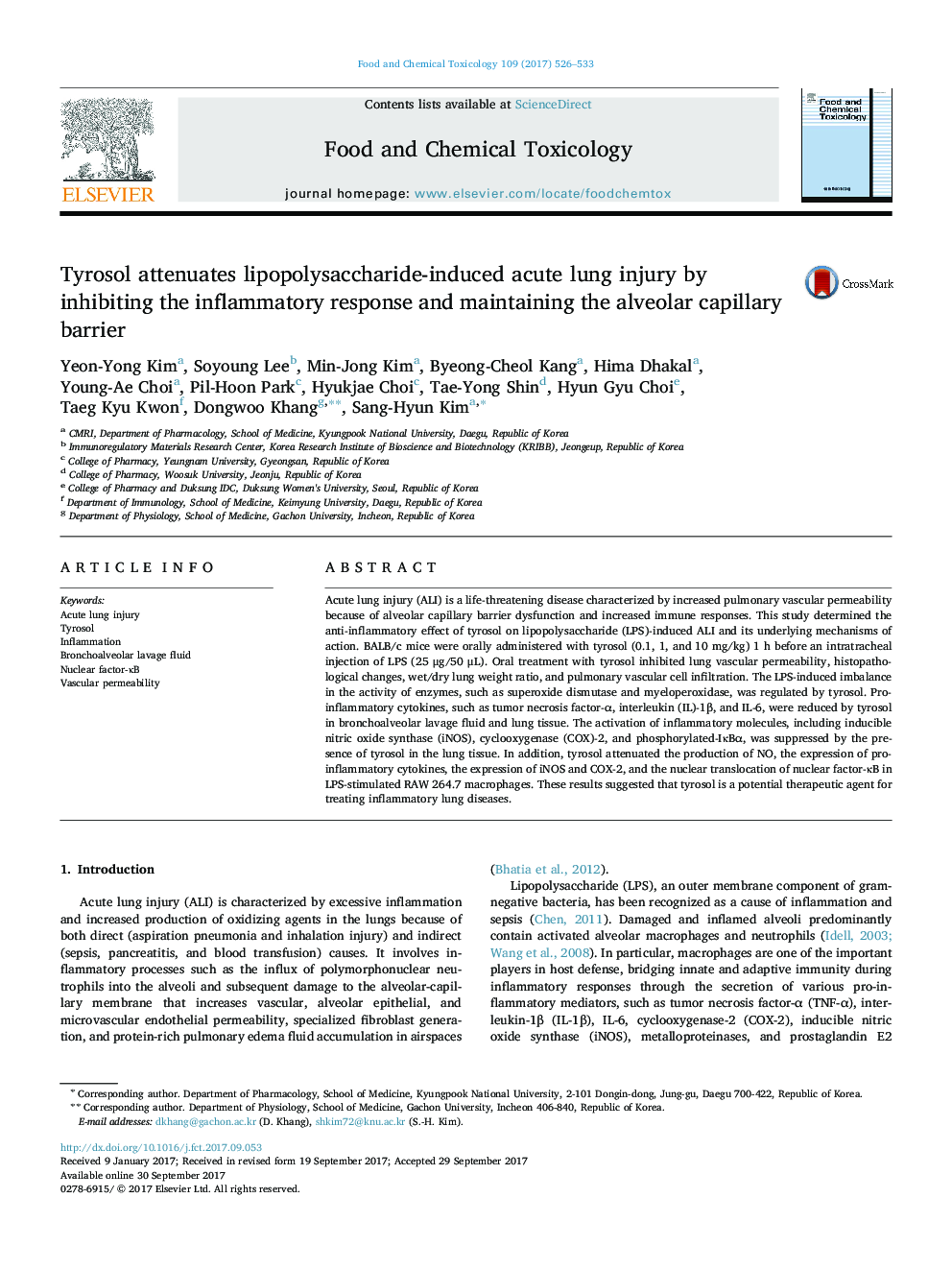| Article ID | Journal | Published Year | Pages | File Type |
|---|---|---|---|---|
| 5559995 | Food and Chemical Toxicology | 2017 | 8 Pages |
â¢Tyrosol attenuated lipopolysaccharide-induced acute lung injury.â¢Tyrosol inhibited pro-inflammatory mediators by the deactivation of NF-κB.â¢Tyrosol might be a potential therapeutic agent against inflammatory lung diseases.
Acute lung injury (ALI) is a life-threatening disease characterized by increased pulmonary vascular permeability because of alveolar capillary barrier dysfunction and increased immune responses. This study determined the anti-inflammatory effect of tyrosol on lipopolysaccharide (LPS)-induced ALI and its underlying mechanisms of action. BALB/c mice were orally administered with tyrosol (0.1, 1, and 10 mg/kg) 1 h before an intratracheal injection of LPS (25 μg/50 μL). Oral treatment with tyrosol inhibited lung vascular permeability, histopathological changes, wet/dry lung weight ratio, and pulmonary vascular cell infiltration. The LPS-induced imbalance in the activity of enzymes, such as superoxide dismutase and myeloperoxidase, was regulated by tyrosol. Pro-inflammatory cytokines, such as tumor necrosis factor-α, interleukin (IL)-1β, and IL-6, were reduced by tyrosol in bronchoalveolar lavage fluid and lung tissue. The activation of inflammatory molecules, including inducible nitric oxide synthase (iNOS), cyclooxygenase (COX)-2, and phosphorylated-IκBα, was suppressed by the presence of tyrosol in the lung tissue. In addition, tyrosol attenuated the production of NO, the expression of pro-inflammatory cytokines, the expression of iNOS and COX-2, and the nuclear translocation of nuclear factor-κB in LPS-stimulated RAW 264.7 macrophages. These results suggested that tyrosol is a potential therapeutic agent for treating inflammatory lung diseases.
Graphical abstractDownload high-res image (255KB)Download full-size image
